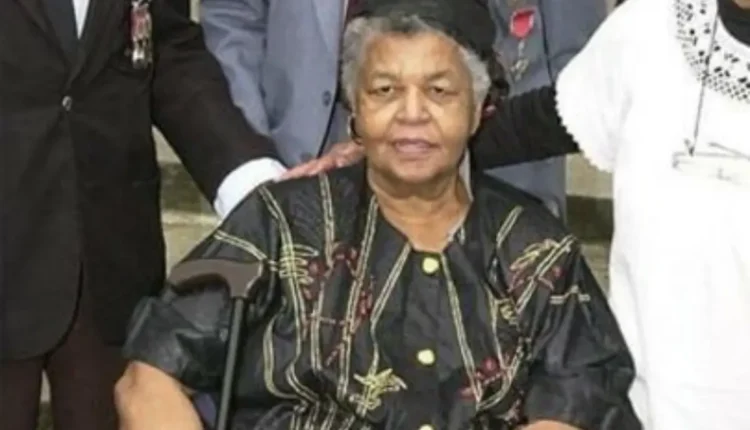Constance Winifred Mark, MBE, BEM, is an extraordinary figure whose life and legacy illuminate the path of resilience, activism, and unwavering dedication to justice. Born on December 21, 1923, in Rollington Town, Kingston, Jamaica, Connie Mark’s journey from a spirited youth to a formidable community organizer in London is a testament to her relentless pursuit of recognition for Black service personnel.
Early Life and Diverse Heritage of Constance Winifred Mark
Connie Mark, née Constance Winifred McDonald, was a mosaic of diverse ethnicities. Her paternal grandmother hailed from Jamaica, her grandfather from Scotland, her maternal grandmother was of Lebanese descent, and her paternal grandfather had roots in Calcutta, India.
Despite this rich tapestry of heritage, the McDonald family proudly considered themselves British, a sentiment deeply ingrained in the colonial Jamaica of that era. Raised in Kingston, young Connie attended Wolmer’s Girls’ School, where her sharp intellect and leadership skills began to shine.
Service During World War II
In 1943, Connie’s journey took a pivotal turn when she was recruited into the Auxiliary Territorial Service (ATS) due to her exceptional bookkeeping skills. Serving as a medical secretary at the British Military Hospital of Kingston, she meticulously typed reports of battle injuries, a role that soon earned her a promotion to lance corporal.
However, her fight for fair treatment began here, as she faced repeated denials for the additional pay she was rightfully entitled to. Despite her promotion to full corporal, Connie’s persistent requests were met with refusals, a blatant disregard for her service, which she attributed to racial discrimination.
Her commanding officer’s recommendation for the British Empire Medal at the war’s end was similarly denied, a decision Connie believed stemmed from her refusal to perform menial tasks for British officers. Undeterred, she continued her service when the ATS merged into the Women’s Royal Army Corps in 1949.
Building a New Life in England
Connie married Jamaican fast bowler Stanley Goodridge in 1952, and together they moved to England where they welcomed two children. In England, she resumed her work as a medical secretary and became deeply involved in community service. Her marriage to Stanley ended in divorce, and she later married Michael Mark.
Constance Winifred Mark’s involvement with the West Indian ex-Servicemen’s Association marked a significant step in her activism, as she championed the inclusion of women in the organization’s title and mission.
Founding the Mary Seacole Memorial Association
In 1980, Constance Winifred Mark‘s dedication to recognizing overlooked contributions culminated in the founding of the Friends of Mary Seacole, later renamed the Mary Seacole Memorial Association.
This organization was instrumental in honoring the legacy of Mary Seacole, a Jamaican nurse whose contributions during the Crimean War had been overshadowed by history. The association’s efforts, including maintaining Seacole’s gravesite and advocating for her recognition, reflected Connie’s broader mission of honoring Black service personnel.
A Legacy of Recognition and Activism
Connie’s tireless advocacy bore fruit in 1992 when she finally received her British Empire Medal, a long-overdue recognition of her wartime service. Her activism continued as she participated in Remembrance Day parades and championed Caribbean culture through poetry and storytelling. In 1993, the British Government established a bursary fund in Mary Seacole’s honor, a testament to Connie’s impactful work.
Also Read: Marlene Malahoo Forte: Champion of Legal and Constitutional Reforms

